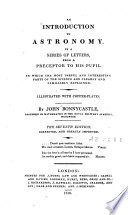 | John Bonnycastle - 1816 - 490 pages
...; and it is evident, from a slight consideration of the subject, that if the axis of the earth was perpendicular to the plane of its orbit, the terminator would pass 'through the two poles, and divide each of the small circles, which are drawn parallel to the equator, into... | |
 | William Jevons - 1828 - 230 pages
...What causes the obliquity of the sun's apparent path in the heavens ? 2. What would be the effect, if the earth's axis were perpendicular to the plane of its orbit, as represented in Fig. 7 ? 3. How much is the earth's axis inclined from the perpendicular position,... | |
 | 1838 - 492 pages
...of a vertical sun, while, as we approach the poles, perpetual winter would destroy all vegetation. If the earth's axis were perpendicular to the plane of its orbit, there would never be any considerable '. variation in the climate of any country on the earth ; but... | |
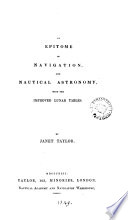 | Janet Taylor - 1842 - 592 pages
...artificial day, at any place, is the time of the sun's continuanee above the horizon of that place. lf the earth's axis were perpendicular to the plane of its orbit, the artificial day would always be very nearly of the same length. The earth's axis however, is declined... | |
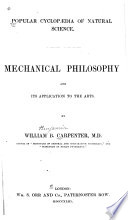 | William Benjamin Carpenter - 1843 - 604 pages
...of so much benefit and happiness to the living creatures that people our globe, there would be none, if the earth's axis were perpendicular to the plane of its orbit round the sun. Its simple inclination to the amount of about 23| degrees,. and its continuance in the... | |
 | William Benjamin Carpenter - 1843 - 290 pages
...of so much benefit and happiness to the living creatures that people our globe, there would be none, if the earth's axis were perpendicular to the plane of its orbit round the sun. Its simple inclination to the amount of about 23J degrees, and its continuance in the... | |
 | Janet Taylor - 1851 - 674 pages
...and both taking place at the noon of the civil day of the same date. above the horizon of that place. If the earth's axis were perpendicular to the plane of its orbit, tne artificial day would always be very nearly of the same length. The earth's axis however, is declined... | |
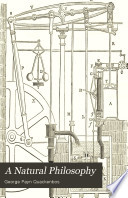 | George Payn Quackenbos - 1860 - 484 pages
...are the Polar Circles ? What Is the one near the north pole called ? That near the south pole V 982. If the Earth's axis were perpendicular to the plane of its orbit, what would follow ? What is said of Jupiter? 983. By what is the Earth attended ? 984. How great is... | |
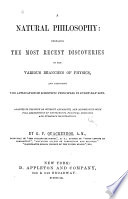 | George Payn Quackenbos - 1860 - 468 pages
...Arctic Circle; that near the south pole, the Antarctic Circle. 982. If, instead of being inclined, the Earth's axis were perpendicular to the plane of its orbit, the regions on the equator would have the Sun constantly in their zenith, day and night would always be... | |
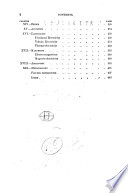 | George Payn Quackenbos - 1862 - 468 pages
...Arctic Circle ; that near the south pole, the Antarctic Circle. 93'2. If, instead of being inclined, the Earth's axis were perpendicular to the plane of its orbit, the regions on the equator would have the Sun constantly in their zenith, day and night would always be... | |
| |